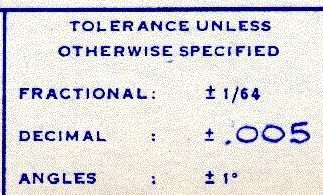A rose by any other name would smell as sweet.
- from Romeo and Juliet
My last two posts, on
Tolerance and
Unconditional love may have a common theme, i.e., my complaint about the
corruption of words and their meanings to suit a particular viewpoint.
Some folks may even seek to change the very definition of a word to fit their ideology. The underlying premise seems to be that words have only a subjective meaning, and, in one sense, this is correct. For example, the decision to call the seed of an oak tree an "acorn" is merely nominal and subjective.
 We could just as well call it a "plebsit", or use the utterance "acorn" to
refer, say, to the seed of a pine tree instead. This is true as far as it goes. The
illogic comes if we expect the acorn itself to actually become like a pine cone
because we've changed the word or its nominal definition.
We could just as well call it a "plebsit", or use the utterance "acorn" to
refer, say, to the seed of a pine tree instead. This is true as far as it goes. The
illogic comes if we expect the acorn itself to actually become like a pine cone
because we've changed the word or its nominal definition.
I am indebted to Robert J. Spitzer, S.J., Ph.D. and his book Healing the Culture for his methodical examination of the 4 classic levels of definition. (Thanks also to Erika P. for giving me the book.) The first level of definition is the nominal level, where we humans decide what to call something, what utterance to attach to it. The next 3 levels are what we discover about the thing - what it is, what it does, and its ultimate end or purpose. These 3 levels are objective, and inherent to the thing at hand. Thus, the acorn continues to be what it is, and continues to carry the same potential regardless of what utterance is attached to it. You would do well to read Spitzer's own more thorough discussion at this link.
Spitzer is concerned in his work primarily with moving on to a philosophy of happiness, freedom, and life issues. In particular, the objective definition of what constitutes a person is important, and i hope to devote more blog space to that theme some time. For now, i would like to suggest another current example of misappropriating a word's definition...
For centuries, marriage has been defined as a union between a man and a woman, usually publicly acknowledged, and usually including sexual relations and the conception and raising of children.
 Certainly in Western Civilization this has been the case. Not only has the word been so defined, but the underlying substance has long been recognized as central to the cohesion of society. The arrangement of marriage facilitates the domestication of men, the protection of women, and the inclusion of men in the rearing of children. It thus forms the very foundation and cornerstone of civilization as we know it. These principles are inherently part of what makes marriage what it is. Even were we to change the nominal definition of marriage, the underlying reality would remain.
Certainly in Western Civilization this has been the case. Not only has the word been so defined, but the underlying substance has long been recognized as central to the cohesion of society. The arrangement of marriage facilitates the domestication of men, the protection of women, and the inclusion of men in the rearing of children. It thus forms the very foundation and cornerstone of civilization as we know it. These principles are inherently part of what makes marriage what it is. Even were we to change the nominal definition of marriage, the underlying reality would remain.
Why do i bring this up? Because i have recently been involved in a few conversations in which another party argues that marriage is something that government or society can define or redefine, or that it is a human right that ought to be extended to same-sex couples. The danger in this line of thinking, as i see it, is not that same-sex marriages would somehow denigrate or tarnish heterosexual marriages. Marriage simply is what it is regardless of any subjective legislative or judicial decree that may be handed down. The danger is, rather, that if we as a society begin to neglect the foundational value of marriage in its objective meaning, we may very well be dismantling our own civilization. This is much more than just a subjective wrangling over words.
The morality of homosexual relations is a topic in its own right, which i will not attempt to address right now. The point of this particular post is just to say that words mean things, that the term "same-sex marriage" is an oxymoron, and that it behooves us not to meddle with our civilization's very roots.
You may also want to check out this blog for some excellent discussion of this and related topics.












